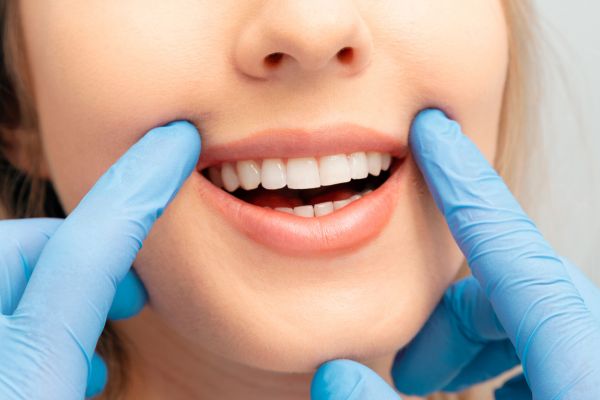In sports, dental injuries are a common risk that athletes face. Maintaining dental safety is essential to prevent long-term dental issues. Coaches play a crucial role in educating players on the importance of dental protection.
This guide will let you explore why protecting your teeth during sports is important, and what protection tools you can use, along with tips on how to protect your smile off the field.
The Role of Coaches in Promoting Dental Safety
Coaches are not just responsible for physical conditioning or strategy, they also play a key role in the overall safety of their players, including dental injuries and trauma in contact sports. As a coach, it is vital to not only teach the rules of the game but also to emphasize the importance of wearing proper protection, such as sports mouthguards.
Understanding the need for safety, especially in contact sports, is critical for everyone involved in athletic training, from coaches to parents to the athletes themselves.
Why Protecting Teeth in Sports is Important?
Dental safety in sports is more than just a recommendation, it’s a necessity. While the primary focus of any athlete may be on their performance, it’s equally important to consider the risks of dental injuries. These injuries can include broken or chipped teeth or fractures to the jaw, which can occur in even the most controlled environments. Dental trauma in contact sports like football, hockey, and basketball is particularly common. According to the American Dental Association (ADA), athletes are more likely to sustain dental damage if they do not wear a mouthguard.
What is the Best Way to Prevent Dental Injuries in Sports?
The most effective way to prevent dental injuries in sports is to encourage athletes to wear sports mouthguards These dental appliances provide a cushion between the upper and lower teeth, reducing the risk of injury. Coaches should focus on educating their players and their families about the necessity of mouthguards and should include this equipment as part of their team uniform.
The Benefits of Custom Sports Mouthguards
When it comes to mouth protection for athletes, one of the most effective options is the custom sports mouthguard. A custom-fitted mouthguard offers a superior level of protection. Here’s why:
- Comfort and Fit: Custom-made mouthguards are designed to fit the athlete’s mouth precisely, providing maximum comfort and protection. This ensures the player can wear it throughout the game without discomfort, which is often a reason athletes avoid wearing generic mouthguards.
- Better Protection: Custom sports mouthguards are specifically moulded to absorb impact and protect the teeth, gums, and jaw. This significantly reduces the risk of dental injuries compared to standard models.
- Increased Compliance: Athletes are more likely to wear a custom sports mouthguard because it fits well and feels comfortable, ensuring consistent protection throughout sports seasons.
Why You Should Invest in Custom Sports Mouthguards
While generic mouthguards are better than nothing, they cannot match the protection and comfort offered by custom sports mouthguards. Here are some key reasons why investing in a custom mouthguard is worth it for athletes:
- Personalized Fit: Custom mouthguards are molded to the athlete’s unique dental structure, ensuring an exact fit. This not only increases comfort but also reduces the risk of the guard moving around in the mouth which can compromise its protective capabilities.
- Enhanced Protection: A well-fitted custom-made mouthguard absorbs the shock from impacts much more effectively than a normal mouthguard. Custom mouthguards are designed to protect not only the teeth but also the gums and jaw, offering comprehensive protection in contact sports.
- Durability: Custom mouthguards are built to last. Since they are designed specifically for the athlete’s mouth, they are less likely to wear down or become uncomfortable over time, ensuring long-term effectiveness.
Pros and Cons of Custom Sports Mouthguards
- Pros:
- Custom-fit to the athlete’s teeth and mouth for superior comfort and protection.
- Provides better shock absorption, reducing the risk of dental trauma.
- More durable and lasts longer than other options.
- Helps avoid mouth irritation or discomfort that could deter athletes from wearing them.
- Cons:
- Higher initial cost compared to normal non-custom mouthguards.
- May require a visit to the dentist for fitting and moulding.
Off-the-Field Protection Matters Too
Athletes don’t just need protection during games many unknowingly grind their teeth at night due to stress, anxiety, or intense training schedules. Investing in the best night guard for teeth grinding can prevent long-term enamel wear, jaw pain, and cracked teeth. These guards are especially useful for athletes who clench unconsciously after a tough match or workout.
Wrap up
We’ve discussed the importance of dental safety in sports and why sports mouthguards are essential to preventing dental trauma in contact sports. Coaches must educate athletes about the benefits of using mouth protection, particularly in high-risk sports. Custom sports mouthguards offer the best fit and protection, which will encourage players to wear them more consistently.
Reference
Moshrefi, A. (2022, July 22). Why are mouthguards important for sports? MD Periodontics. https://mdperio.com/blog/mouth-guards-are-important-for-sports/
